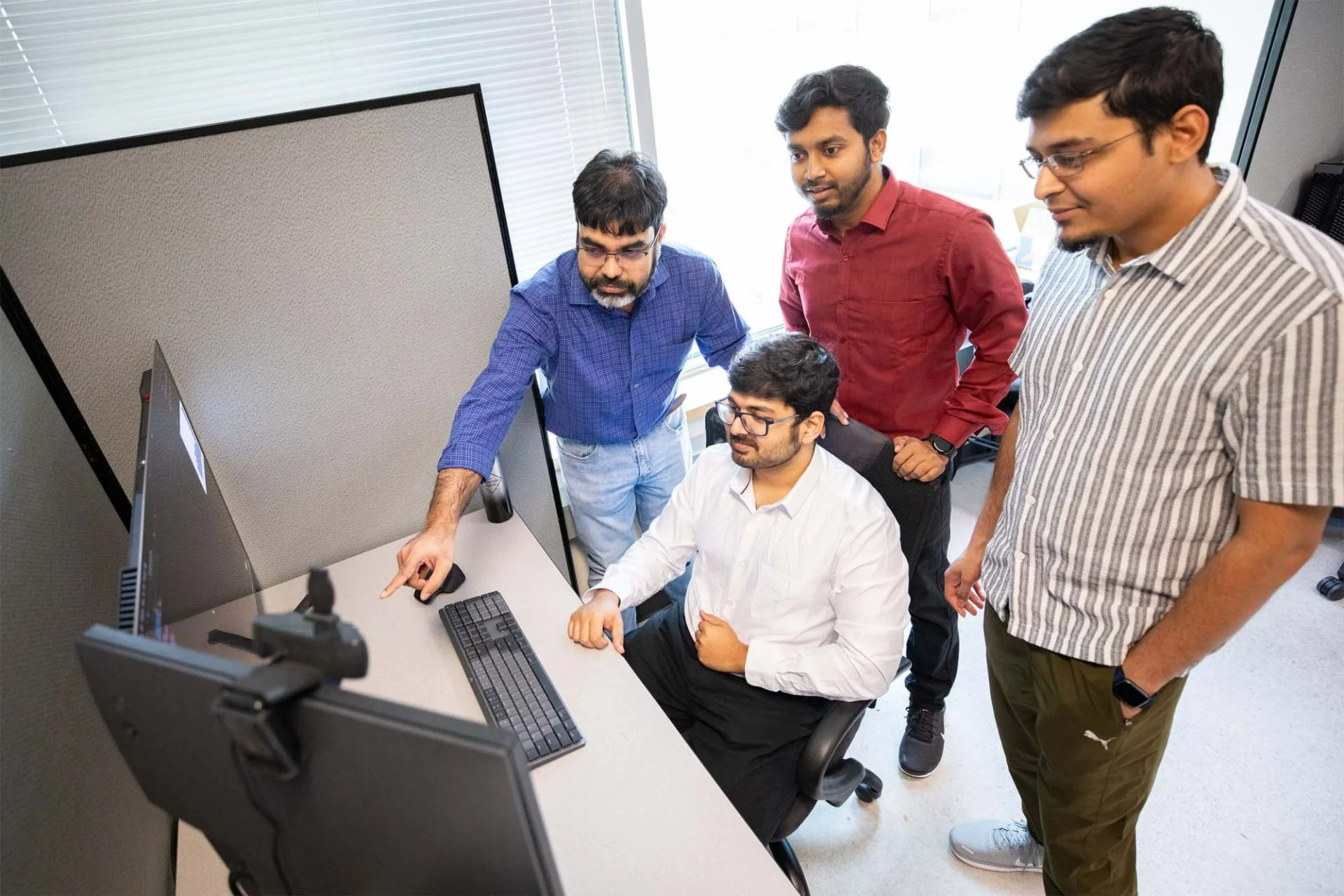Dr. Kanad Basu and his team at the University of Texas at Dallas, in collaboration with Intel Corp., have developed a method to protect quantum computers from attacks. Their solution, Quantum Noise Injection for Adversarial Defense (QNAD), uses the inherent noise and crosstalk in quantum computers to counteract attacks aimed at disrupting artificial intelligence’s decision-making abilities. The team demonstrated that an AI application was 268% more accurate with QNAD during an attack. The research, funded by the National Science Foundation, will be presented at the IEEE International Symposium on Hardware Oriented Security and Trust.
Quantum Computing and Adversarial Attacks
Quantum computers, known for their ability to solve complex problems exponentially faster than classical computers, are anticipated to enhance artificial intelligence (AI) applications in devices such as autonomous vehicles. However, these advanced computing systems are not immune to adversarial attacks. A group of researchers from the University of Texas at Dallas, in collaboration with an industry partner, have developed a method to provide an additional layer of protection against such attacks. Their solution, Quantum Noise Injection for Adversarial Defense (QNAD), mitigates the effects of attacks aimed at disrupting AI’s decision-making or problem-solving abilities. The team is set to present their research at the IEEE International Symposium on Hardware Oriented Security and Trust.
The Potential Impact of Adversarial Attacks
Adversarial attacks that aim to disrupt AI inference can have serious implications. Dr. Kanad Basu, assistant professor of electrical and computer engineering at the Erik Jonsson School of Engineering and Computer Science, likens an attack to someone obscuring a stop sign. An autonomous vehicle may misinterpret the stop sign as a reduced speed sign and fail to stop. The goal of the QNAD approach is to enhance the security of quantum computer applications. The inherent noisy behavior of quantum computers actually diminishes the impact of attacks, making this a unique approach that can supplement other defenses against adversarial attacks.
The Fundamentals of Quantum Computing
Quantum computing is an emerging technology that utilizes quantum mechanics to solve complex computational problems. The fundamental unit of information in quantum computers is the qubit, analogous to bits in traditional computers. However, qubits can simultaneously exist in a state of 0 and 1 due to the principle of superposition, allowing them to represent two states and dramatically increasing their speed capabilities compared to traditional computers. This computing power gives quantum computers the potential to break highly secure encryption systems.
Challenges and Solutions in Quantum Computing
One of the challenges in quantum computing is the susceptibility to “noise” or interference due to factors such as temperature fluctuations, magnetic fields, or hardware imperfections. Quantum computers are also prone to “crosstalk,” or unintended interactions between qubits, which can result in computing errors. The researchers’ approach leverages intrinsic quantum noise and crosstalk to counteract adversarial attacks. The method introduces crosstalk into the quantum neural network (QNN), a form of machine learning where large datasets train computers to perform tasks, including object detection or other computer vision responsibilities.
The Effectiveness of QNAD
The researchers demonstrated that, during an attack, an AI application was 268% more accurate with QNAD than without it. Shamik Kundu, a computer engineering doctoral student and a first co-author, compared the QNAD framework’s benefit to that of seat belts in cars. Just as a seat belt reduces the impact of a crash, the QNAD framework diminishes the impact of adversarial attacks on a QNN model. The research, which also involved computer engineering doctoral students Navnil Choudhury and Sanjay Das, and Dr. Arnab Raha, a senior research scientist at Intel Corp., was funded by the National Science Foundation.
External Link: Click Here For More

